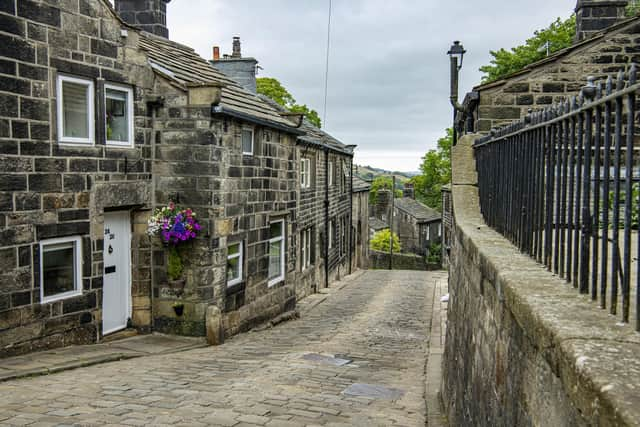Researchers who spent 15 years transcribing 400 wills from 17th-century Yorkshire uncover unexpectedly modern women and birth of industry
They date back to 1688 – the year last will and testaments finally began being recorded in English rather than Latin – and from a period when the parish of Halifax was England’s largest.
Now, after starting the project in 2007 and suffering the sudden death of the tutor who inspired them, Hebden Bridge Local History Society and the Halifax Probate Group have published the final volume in a series of books containing the wills of 447 people who lived in modern-day Calderdale between 1688 and 1700.
Advertisement
Hide AdAdvertisement
Hide AdThese documents are a fascinating snapshot of social history, and have revealed the early seeds of the coming textile industry, the surprisingly dominant role of single women in business and even unconventional romantic lives.


They include bequests by the predecessors of Anne Lister, subject of the TV drama Gentleman Jack, and by several other local families who rose to prominence during the Industrial Revolution.
The group, who originally met on a Workers’ Education Association course, includes teachers, librarians, doctors and businesspeople who have worked as a co-operative.
In 2015, they suffered a setback with the death of Alan Petford from lung cancer aged just 61; the course leader had chosen the material they would transcribe together from archives held in York and they were determined to continue his legacy.
Advertisement
Hide AdAdvertisement
Hide Ad"Alan was extraordinary, and we wanted to keep the commitment and see the project through. He has been an unspoken presence and we couldn’t cut corners because he wouldn’t have done,” said retired teacher Sheila Graham, who took charge of indexing and the glossary.
The subjects – who would have signed the parchments that dealt with their property and estates on their deathbeds – were mostly men, as women’s ownership rights were limited at the time, and from the early middle classes. They were engaged in the ‘dual economy’, both farming and textile weaving and dying.
Sheila quickly noticed that there were many widows and unmarried women left in charge of considerable fortunes who perfomed roles contrasting with the ‘decorative’ image she had pictured.
"Women were quite often equal partners, and daughters were named as executors alongside sons. Widows would keep on their husband’s businesses and many were running inns. They were also prominent moneylenders in an early local banking system, and one of the richest women we found had a massive amount loaned out in bonds.”
Advertisement
Hide AdAdvertisement
Hide AdThere were touching attempts by the dying to avoid future family disputes and preserve wealth down the generations, such as the dyer who left his estates to his sons on the provision that they took care of their ‘lunatic’ mother in her widowhood.
"We even found a fascinating precursor to an Anne Lister situation. It was a spinster involved in textiles and farming who left everything to her ‘most trusted friend’, similar to Anne’s ‘marriage’ to Ann Walker a century later. There was also an inventory which listed a rich shearmaker’s engine for raising cloth – which turned out to be one of the machines that later caused the Luddite riots. You could see the area moving towards industrialisation.”
The shopkeepers’ inventories were also intriguing, listing items such as pewter chamber pots – far more popular in the town than the outlying villages – and expensive spices imported from the colonies beginning to form the British Empire.
The researchers have chosen Halifax Minster, where many of their subjects are buried, for the book’s launch event on October 20 at 7pm.
Advertisement
Hide AdAdvertisement
Hide AdAdds Sheila: “Probate records allow us to uncover the world of ordinary people. Wills let us hear their last wishes, to provide for their children and to ensure family harmony. Almost always there is the contemplation and fervent hope of an afterlife. For the family historian there are rich pickings.”
